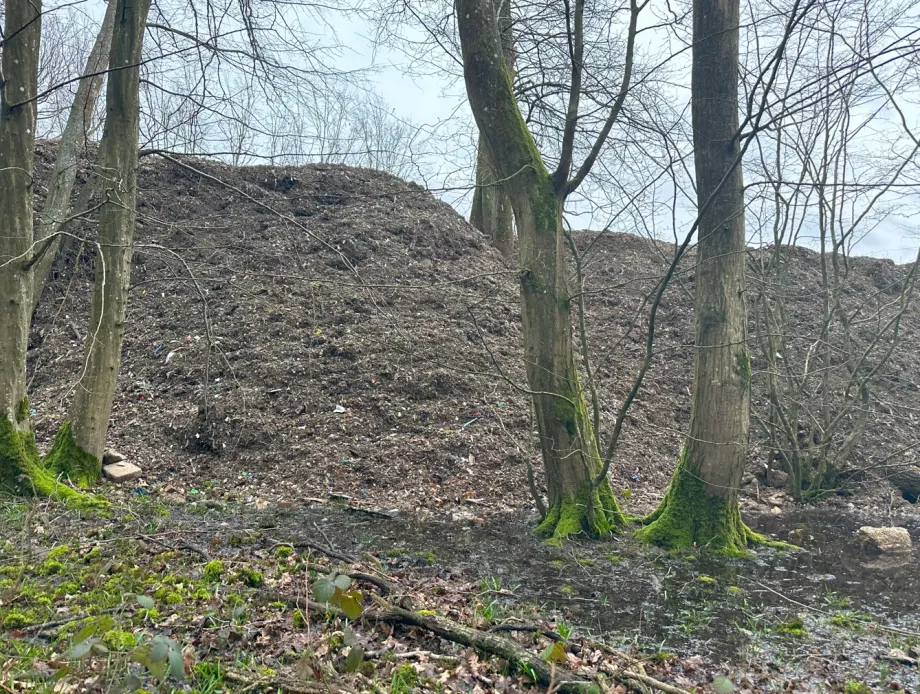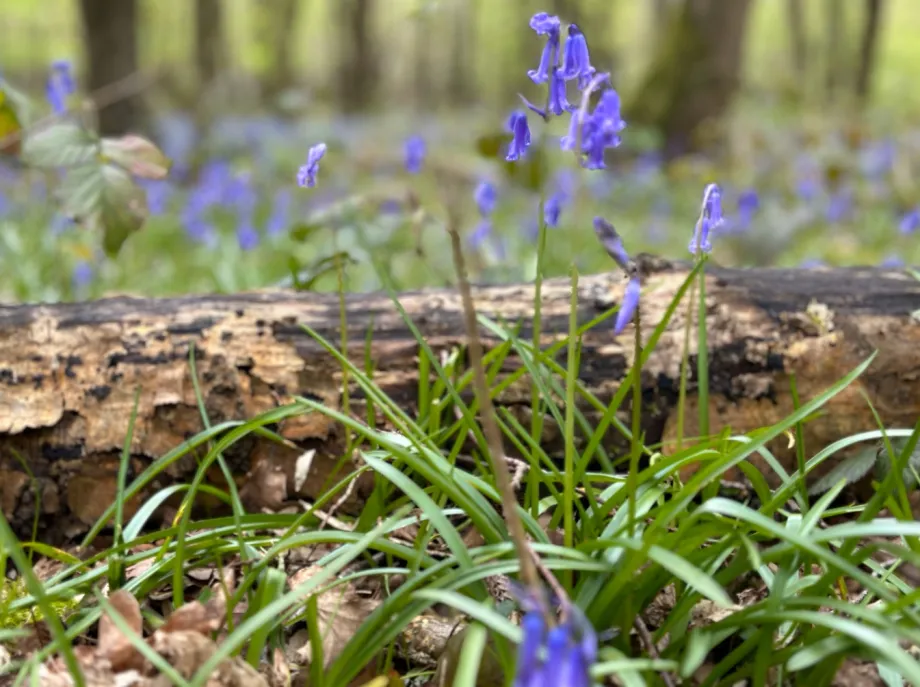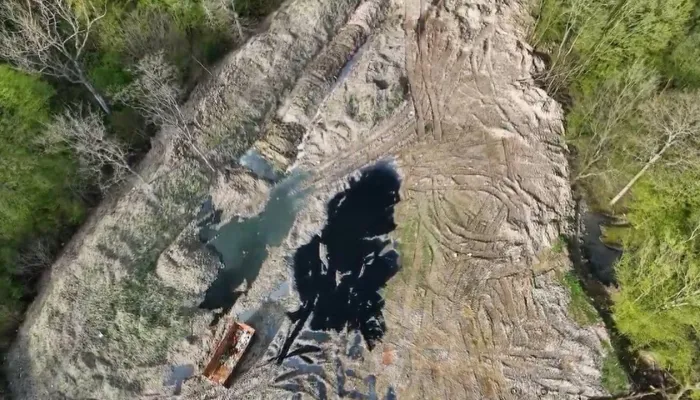
Rubbish piled high at Hoad's Wood. Sally Smith
A Crime Against Nature
Hoad’s Wood, a designated Site of Special Scientific Interest (SSSI) in Bethersden, Ashford, should have been one of the most protected natural spaces in the country. Instead, in July 2022, criminals began using it as a dumping ground. Lorry after lorry rolled in, offloading mountains of waste. Residents, alarmed by what they were witnessing, did what any responsible citizens would do - they reported it.
First stop: the police. Their response? “Not our jurisdiction, contact the local council.” The council then redirected them to the Environment Agency (EA). The EA? Well, time ticked on and the lorries continued to come. And so, the cycle continued, while the dumping escalated. For six months.
It wasn’t until January 2023, with the woodland already drowning in rubbish, that a closure order was finally put in place. But it wasn’t a piece of paper that stopped the criminals, it was something so absurdly simple it left locals in disbelief. Two concrete blocks at the entrance. That’s right. Just blocking the gateway could have prevented months of destruction.

Bluebells at Hoad's Wood. Sally Smith
Community Fights Back
The people of Bethersden weren’t about to let this go unanswered. The Rescue Hoad’s Wood campaign was born, spearheaded by passionate residents demanding accountability. Public meetings were called, councillors and MPs were pressed for action, and conservation groups, including Kent Wildlife Trust, RSPB, CPRE Kent, South East Rivers Trust, The CLA, and Woodland Trust, joined forces to amplify the call for justice.
By spring, letters had reached the Secretary of State, urging intervention. Then, in May, came a breakthrough, a ministerial order was issued to clear the site. Fast forward to 2025, and finally, a cleanup appears to be on the horizon. Even more encouraging, the EA recently announced the arrest of three individuals suspected of orchestrating this environmental catastrophe.
Does Crime Pay?
While these arrests are a step in the right direction, a Freedom of Information request to the EA revealed a concerning reality. Since 2014, only nine individuals have been convicted for similar offences, with the largest fine standing at around £33,000. Compare that to the estimated £15 million cleanup cost of Hoad’s Wood, and the message seems clear: the risk-to-reward ratio for environmental crime is skewed in favour of the perpetrators.
And it’s not just Hoad’s Wood. Over on Sheppey, the North Sheppey Coastal Conservation and Preservation Community are battling the exact same issue. Across the UK, illegal waste dumping is becoming a disturbingly common occurrence.
A System in Desperate Need of Reform
This case highlights a glaring problem, there’s no cohesive response to environmental crime. When criminals strike, residents shouldn’t have to navigate a maze of agencies, each unwilling or unable to take immediate action. What’s needed is a unified strategy where police, local authorities, and environmental agencies collaborate seamlessly to tackle these crimes head-on.
The Road to Recovery
Clearing the waste from Hoad’s Wood is only the first step. The real question remains: what happens next? The damage inflicted on this precious ecosystem will take years, possibly decades, to undo. A long-term restoration plan is essential to bring back the rich biodiversity that once thrived here.
This should serve as a wake-up call. We must not only be reactive when environmental disasters strike but proactive in preventing them. Stronger laws, swifter action, and harsher penalties must be implemented to protect our natural spaces before they’re lost.
As investigations continue, one can only hope that Hoad’s Wood becomes a turning point in how we address environmental crime. The residents of Bethersden—and conservationists across the country—will be watching closely. Will justice be served, or will this be yet another case where nature pays the ultimate price?

